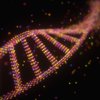Fritextsökning
Artiklar per år
Innehållstyper
-

Innovative start-up helps doctors, scientists and industry balance coagulation risks
For many doctors caring for seriously ill patients, for example, in stroke units and cancer wards, maintaining the life-saving balance between bleeding and thrombosis is an ongoing challenge. In the late 1980s, scientists at Maastricht University in the Netherlands developed an innovative method, the thrombin generation assay (TGA), which provides a complete overview of a physiological process crucial for maintaining normal haemostasis.
-

“Conducting research at universities is becoming more and more like working at a research hotel”
The government wants Swedish research to focus on excellence and innovation, but can the two be combined? Life Science Sweden talks to Anna Falk, a professor at Lund University, about research policy, the constant hunt for funding in academia and what constitutes ‘fine research’.
-

Bayer has cut 1,500 roles – so far
German chemical and pharmaceutical group Bayer cut more than 1,500 roles in the first quarter alone– and most of them were management positions.
-

Carl Borrebaeck – professor and serial entrepreneur with a taste for speed
Award-winning cancer researcher, the founder of many listed companies, and constantly in the academic and commercial spotlight for decades. However, Carl Borrebaeck, Professor of Immunotechnology at Lund, is not yet satisfied. “We have a new, potentially super exciting project in the pipeline,” he says.
-

Forskaren in Hagastaden now inagurated
The real estate company Vectura's life science center in Hagastaden, Forskaren, is now inaugurated. The opening was attended by people from the industry, politicians and royalty.
-

Hon är KI-bolaget Neobiomics nya vd
Neobiomics, som utvecklar produkter inom neonatalområdet, har utsett Emma Höglund till ny vd.
-

Nocebo – the evil twin that makes you feel worse
The placebo effect is well known in healthcare, but not so its opposite: nocebo. “The effect is small, but it can have major repercussions,” says Uppsala researcher Charlotte Blease, co-author of a book on the phenomenon.
-

Study: Popular diabetes treatment is not associated with thyroid cancer
Concerns raised about an association between GLP-1 analogues, used to treat diabetes and obesity, and an increased risk of thyroid cancer are not supported by an extensive Scandinavian study.
-

Specific proposals and targets top the universities’ desired priorities
What are the universities’ expectations for the update of the national life science strategy? Life Science Sweden posed the question to representatives from Karolinska Institutet and Sahlgrenska Academy.
-

“What is important is to create an overview and understanding from different perspectives”
Scientist Jochen Schwenk analyses blood proteins using proteomics to improve our understanding of disease and health. This year, he is moderating the Lab & Diagnostics of the Future event.
-

From Valneva to the CEO position at NorthX – “I saw it as a great opportunity”
A new cell therapy for leukaemia, a vaccine in tablet form against cholera, and a proprietary mRNA line with the potential capacity to supply the entire Nordic region with vaccines during a future pandemic. These are some of the projects underway at NorthX Biologics – under the direction of new CEO Janet Hoogstraate.
-

To build trust, one must be able to say “I don’t know” – whether human or AI
Will AI strengthen or break down trust? It depends on whether we can understand and accept its limitations, and our own, writes Sarah Lidé in a column.
-

KI’s new super machine measures brain activity in real-time – “A very expensive hairdo”
Using brand-new, super-advanced equipment, researchers at Karolinska Institutet can now measure brain activity in real-time, with higher resolution than previously possible. “This opens up fantastic opportunities”, says brain researcher Daniel Lundqvist.
-

Ingrid Lönnstedt: Demystification of the power of a scientific study
”You surely do realize that even the smallest changes in study assumptions may influence the estimated sample size needed. And how is it even possible to guess the magnitude of the treatment effect before performing the study?” writes Ingrid Lönnstedt in a column.
-

Ingrid Lönnstedt: What does the p-value mean?
The smaller the better, and preferably smaller than 0.05. A p-value smaller than 5% means that the treatment effect is statistically significant at 5% significance level. But what does that mean? Read Ingrid Lönnstedt´s column to learn more.
-

Anna Törner: The clinical trial – Periscope to reality
What happens to the patients in the clinical trial is not very interesting, writes Anna Törner in a column.
-

A vaccine the world is waiting for: “It can change the lives of many”
A Solna laboratory is developing a vaccine that could save the lives of countless children in low- and middle-income countries. “Working on something that can make a difference for many people is important to me,” says Christine Hägglund, Laboratory Manager.
-

Business Sweden: “Companies have a lot to offer in data-driven precision medicine”
Data-driven precision medicine can potentially solve major healthcare problems, states Business Sweden in a new report on the subject.
-

Founder of Bioarctic, Lars Lannfelt, is honoured: “I want to create something for the future”
It´s like a scientist’s dream: to be the world’s first with a drug that genuinely affects one of our major diseases. Lars Lannfelt and his company Bioarctic have achieved just that, and they are thus making a significant contribution to the history of Swedish medicine. He is now being awarded the Research!Sweden Award 2023.
-

“A major energy boost for the entire cancer vaccine field”
The development of cancer vaccines has accelerated in recent years. Norwegian Ultimovacs is one of the companies attempting to develop a new type of treatment line for cancer patients, and the company recently presented positive data from a phase II study.
-

High-tech companies are increasingly focusing on health
Tech companies have been taking an interest in healthcare for many years, and this interest seems to be increasing. “It’s not a sudden shift in trend, it’s more about them advancing their positions,” says Anna Lefevre Skjöldebrand, CEO of Swedish Medtech.
-

The physician at the tech giant: “Observations in the emergency room made my mind up”
When Nasim Farrokhnia was in third grade at school in Tehran, the capital of Iran, her father gave her a book about Marie Curie, which soon became her favourite book. Perhaps her interest in science was born there and then, as science and new technology have since been a constant feature of her working life. Today, she is a Healthcare Manager in Microsoft’s Western Europe team.
-

Study names with an attitude – more important than you might think
Ironman, T-rex, Star-Trek. Popcorn, Proper, Scout. Nope, these are neither fantasy films nor dog names. They’re the names of ongoing cancer studies in Sweden.
-

Astra Zeneca’s Sweden CEO: “We have great faith in our portfolio”
It all started with a summer job as an operator at Astra’s chemical factory in Snäckviken, just outside Södertälje. More than three decades and countless different assignments later, Per Alfredsson, born and raised in Södertälje, is CEO of Astra Zeneca Sweden, which employs 7800 people in Södertälje, Stockholm and Gothenburg. “It was a very special feeling to be in charge of the entire organisation,” he says in an interview about his career and potential future blockbusters.